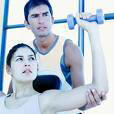|
Carbohydrates are the body's main energy source. They provide most of the energy required to run our bodies through a complex series of chemical reactions that start the moment we put a bit of carbohydrate-rich food into our mouths. Carbs are converted into a simple sugar called glucose that is carried to every cell in the body and used for energy. Your diet should consist of 55 to 60 percent from carbs. It should be coming from beans, whole-grain breads and cereals, fresh fruits, and vegetables. Complex carbohydrates include not only sugar but also starches and fiber. Simple carbohydrates are just sugars. Both provide glucose, your body's preferred fuel. A whole potato contains 90 calories and a typical slice of bread about 70 to 80. By the time we add 2-3 tablespoons of butter, sour cream, bacon bits, and cheese, a potato may have turned into a 500 calorie bomb with 23 grams of fat. Low carbohydrate intake can do: · Heightened sense of stress and tension · Exaggerated reactions · Loss of appetite · Inability to concentrate · Dehydration · Lightheadedness, fainting
High carbohydrate intake can do: · Fluctuations in energy · Fluctuations in blood sugar or low blood sugar · Fatigue · Weight gain · Food cravings · Frequent hunger · Headaches · Tooth decay
View all Personal Trainer
Fitness Articles Here Trish Amelio is a Personal Trainer in Pennsylvania. You can contact Trish through her Personal Trainer Schnecksville Webpage for more information on her services.
|
|


